Major project
Helping busy young professionals to become more mindful about their shopping… [Read more]
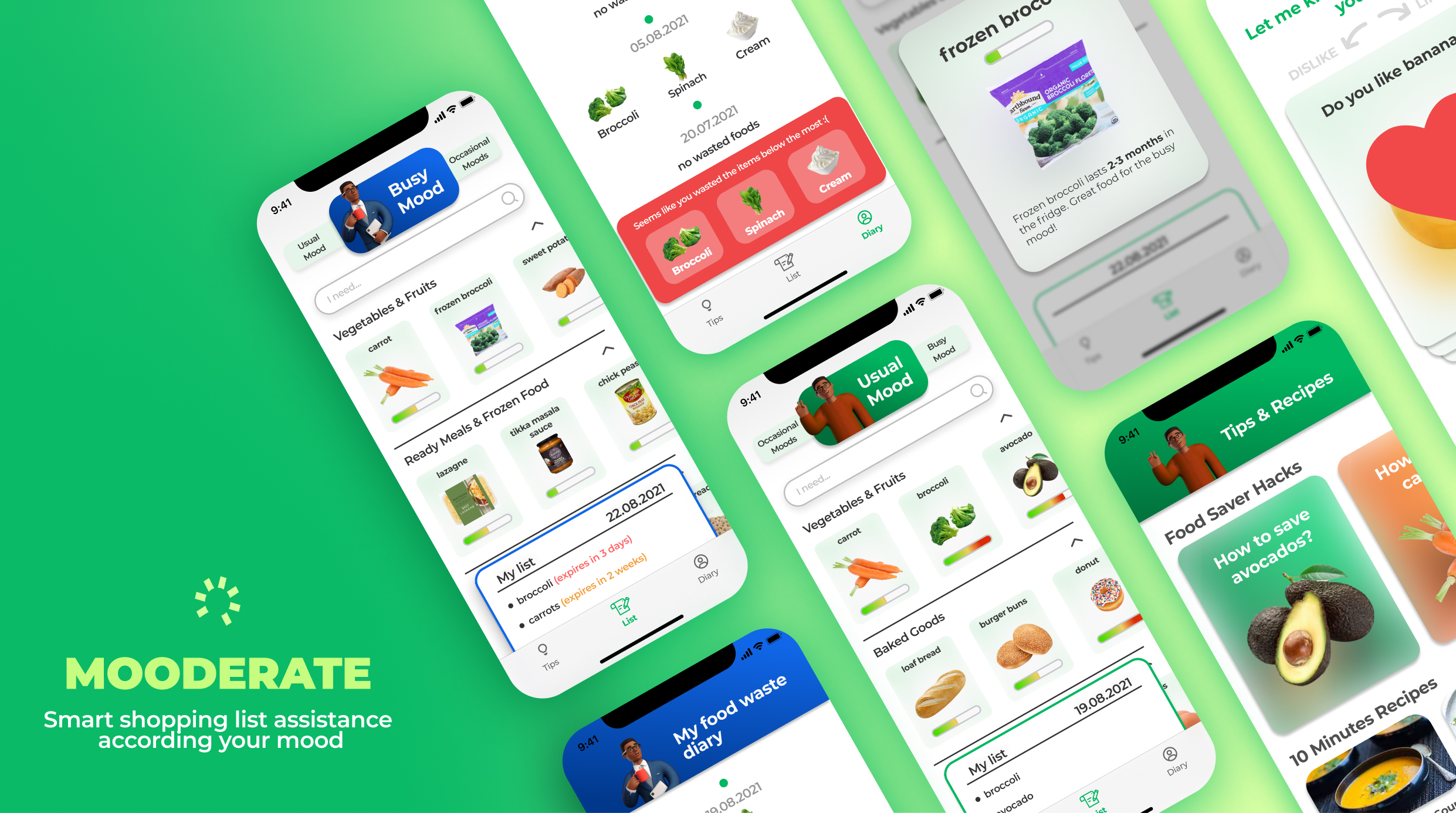
Mood-aware smart shopping list assistant that aims to prevent food waste.
Mooderate is a smart shopping list assistance app with a focus on preventing food waste that helps busy young professionals who want to make shopping lists quickly and accurately, by learning users' shopping habits according to their moods and food waste patterns.
It aims to reduce food waste by learning how user's food preferences change according to their moods and help them to create more accurate shopping lists.
It learns from user's shopping and mood inputs then project this knowledge on the list-making experience to enable awareness effortlessly.
It assists the users smoothly on their journeys by providing tips and 10-minute recipes that give them confidence about handling their food more mindfully.
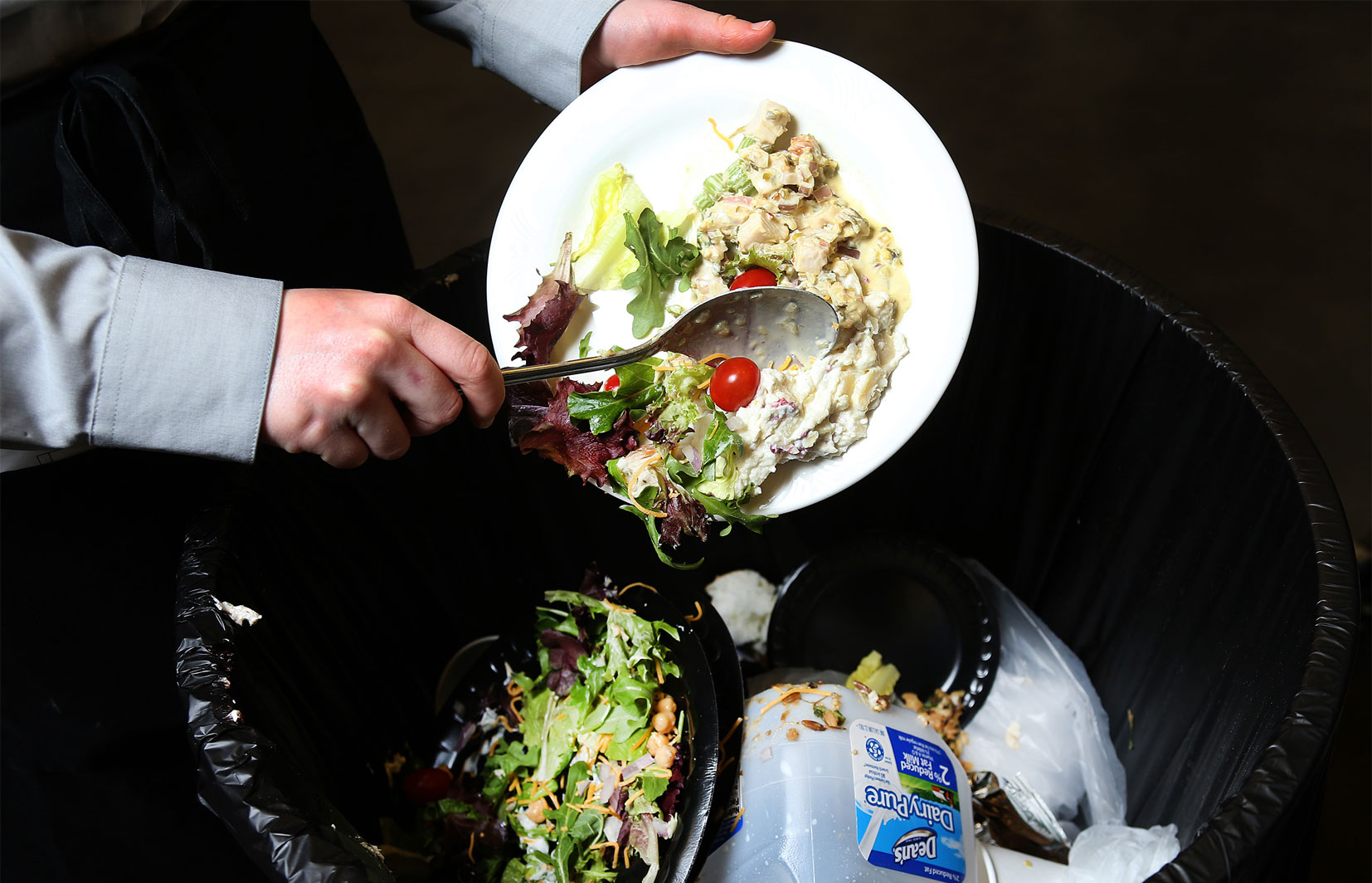
The Challenge
Approximately %33 of the groceries purchased for household consumption go to the bins in the UK (Evans, 2011), and food waste takes 17% of the average annual household waste (Defra, 2015).
Food waste happens because of relationships between multiple behaviours called 'specific food behaviours'; planning, storing, preparing, and consuming food (Quested et al., 2011). It is assumed that maintaining harmony between them is one of the critical solutions for household food waste and becoming mindful at the planning and shopping stages has a significant role as they start this consumption cycle.
This project aimed to understand the relationship between food waste and the shopping habits of busy young professionals, then explored solutions for the pain points to become mindful of grocery shopping and prevent food waste consequently.
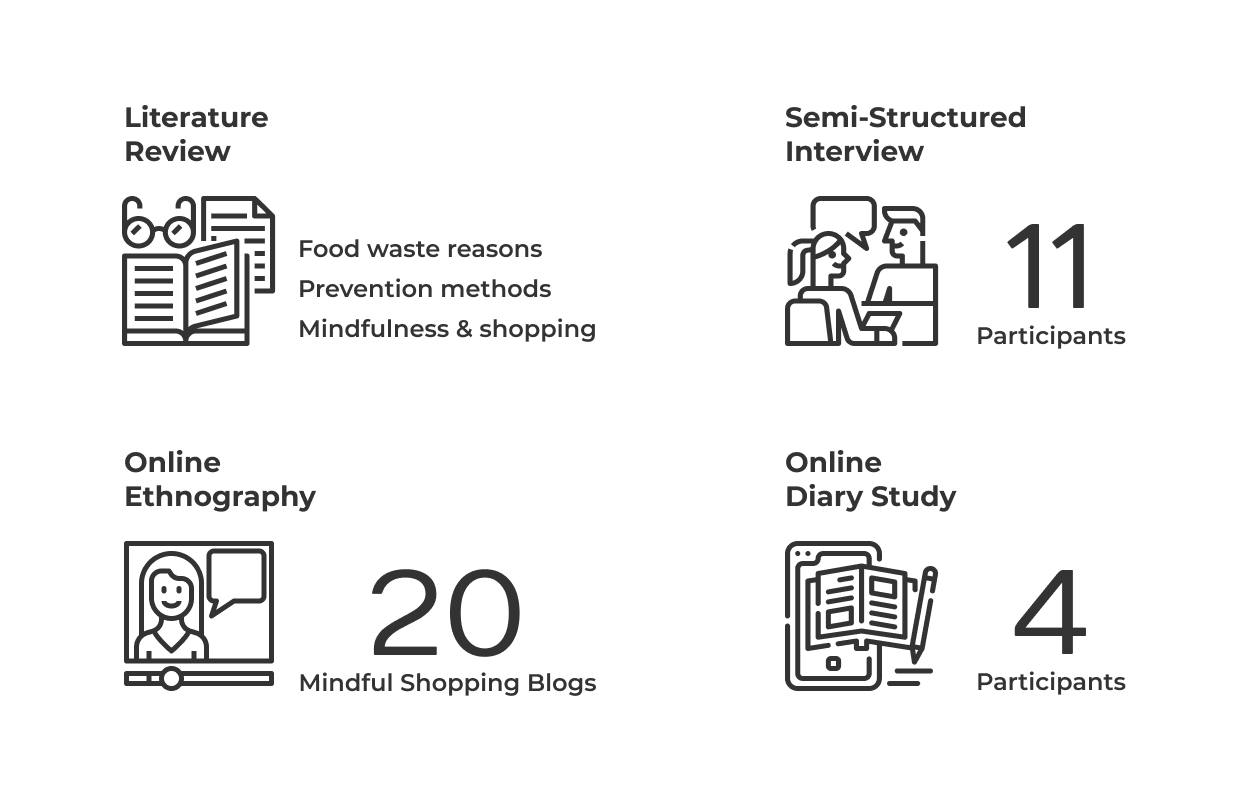
User Research
In-depth contextual research was conducted to gain deep qualitative insights about key pain points that cause food waste.
A comprehensive Literature Review aimed to identify the reasons for food waste and shape primary research into a more focused direction.
Interviews aimed to uncover the relationship between busy work life and food waste in the context of food shopping and planning.
Online Ethnography aimed to explore the shared experiences of mindful shopping bloggers to identify impactful interventions and potential failures.
Diary Study aimed to identify the differences between plans and realities about food shopping; testing effects of list-making and external interventions shaped by mindfulness principles on food waste.
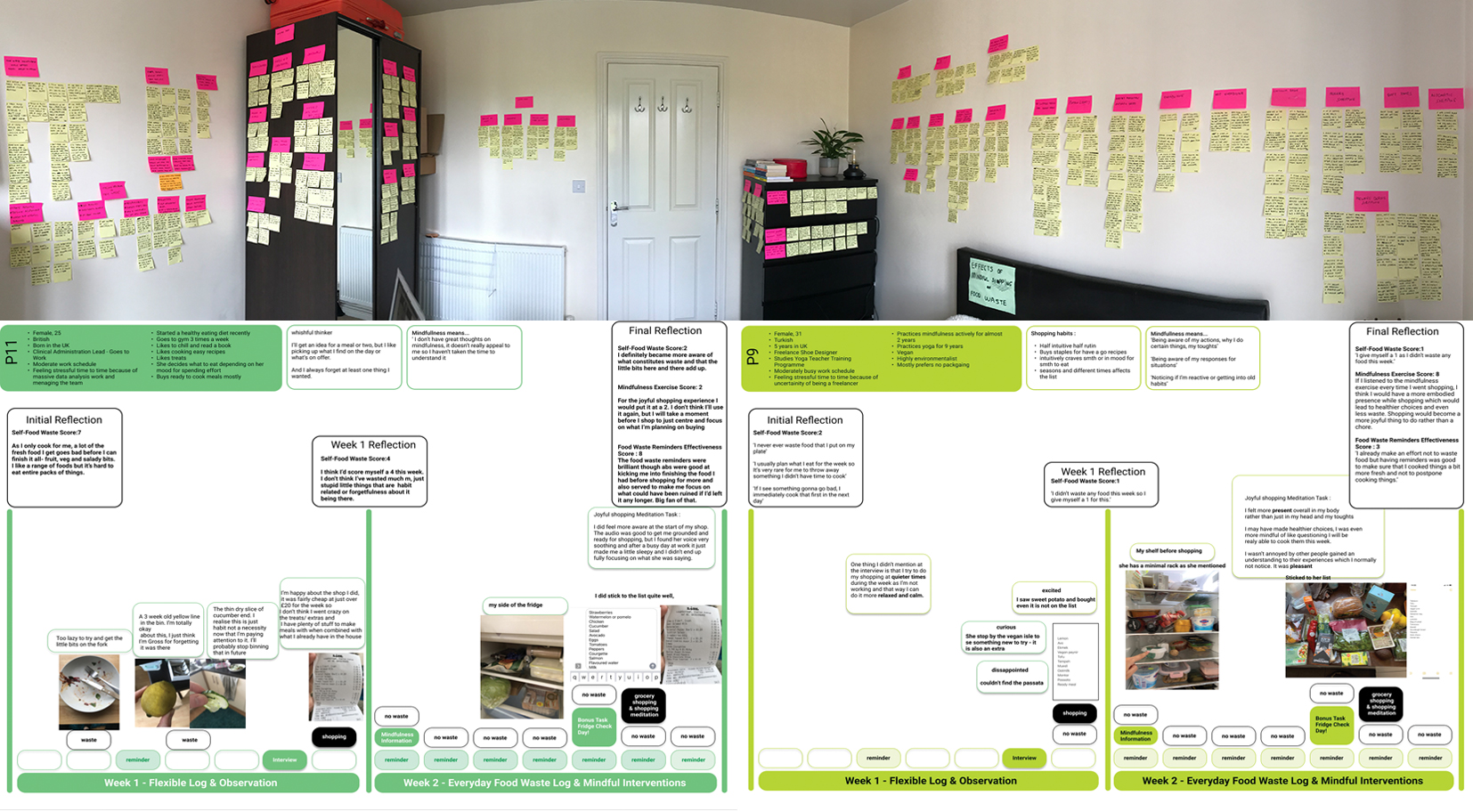
Key Insights
Data were collated and analysed using affinity mapping and experience mapping. Key insights included:
Making a reflective shopping list helps to become mindful and reduce food waste.
People tend to be less organised about food planning when they are in a busy and stressful mood.
People don’t want to spend too much time on list-making or food planning during busy schedules.
Food waste reflections are more likely to be forgotten while shopping. This situation leads to recurring food waste on the same items.
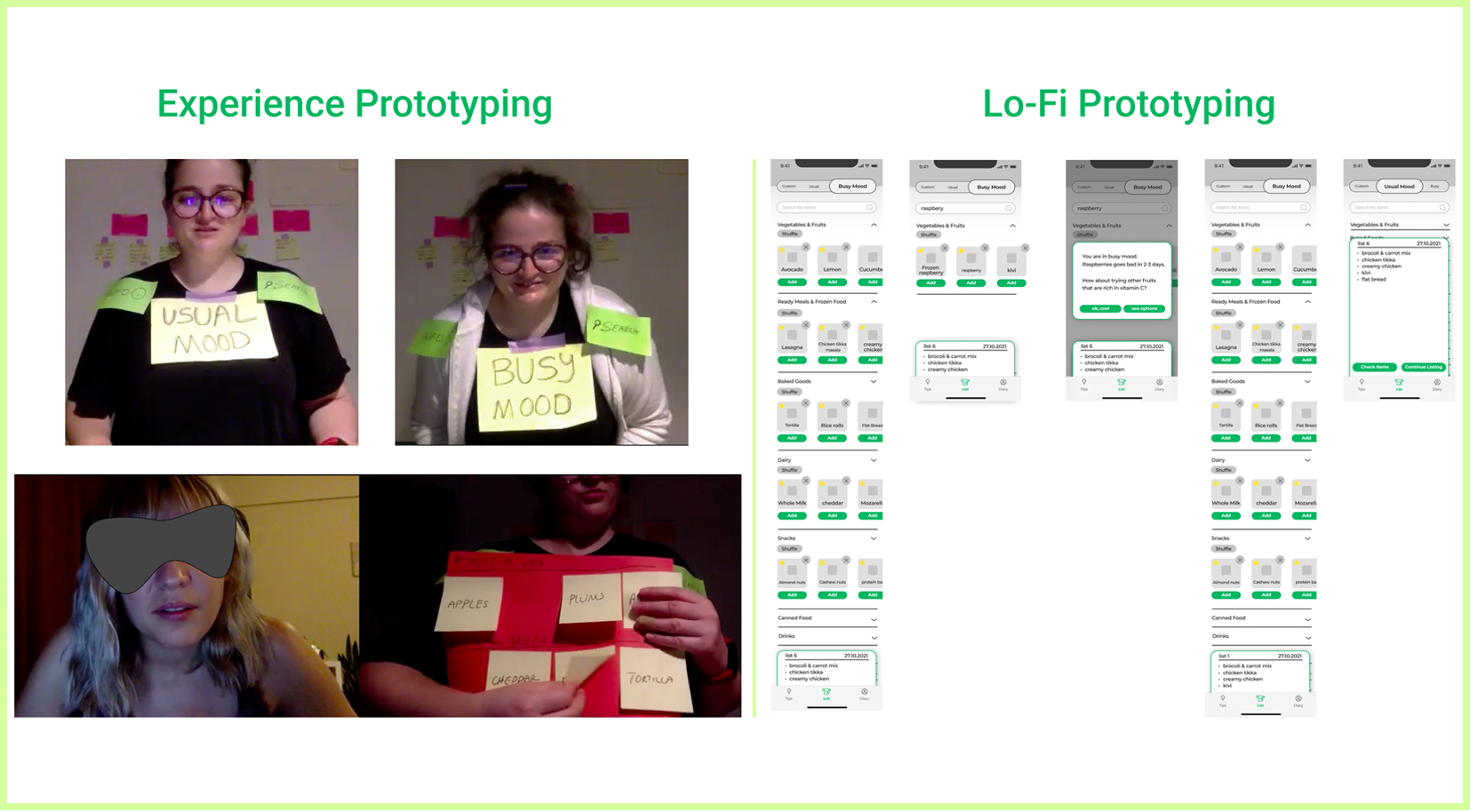
Design Iteration
Key insights turned into opportunity statements thinking of divergent solutions to the issues. Then they were evaluated by the ability to prevent food waste and providing permanent behaviour change.
HMW provide an effortless list-making experience with suggested items by using Ai to learn their habits and use behaviour steering and feedback strategies to prevent food waste caused by unmatching shopping plans with moods.
After the ideation process, experience prototyping and co-design sessions were conducted with target users that helped to validate the concept and refine the ideas further.
The MoSCow prioritisation method was used to finalise features and user requirements. Then a lo-fi prototype was created and tested with target users to refine the concept and usability.
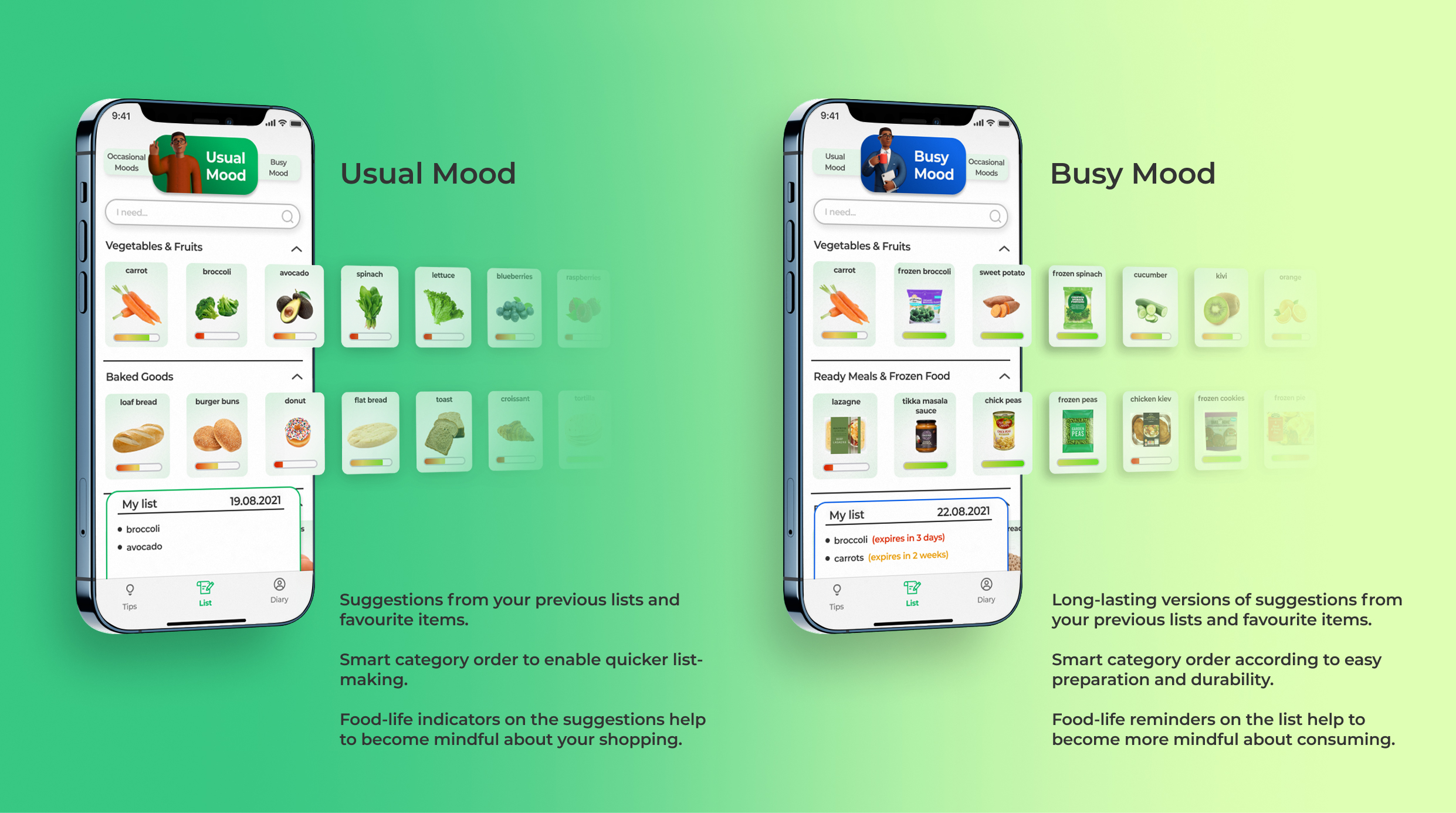
Final Design - Main Moods
Usual mood aims to turn list-making into a habit by providing an effortless list-making experience with suggestions learned from user's shopping preferences.
Busy mood aims to enable making mindful decisions during busy and stressful times by providing long-lasting versions of suggestions learned from user's food waste history.
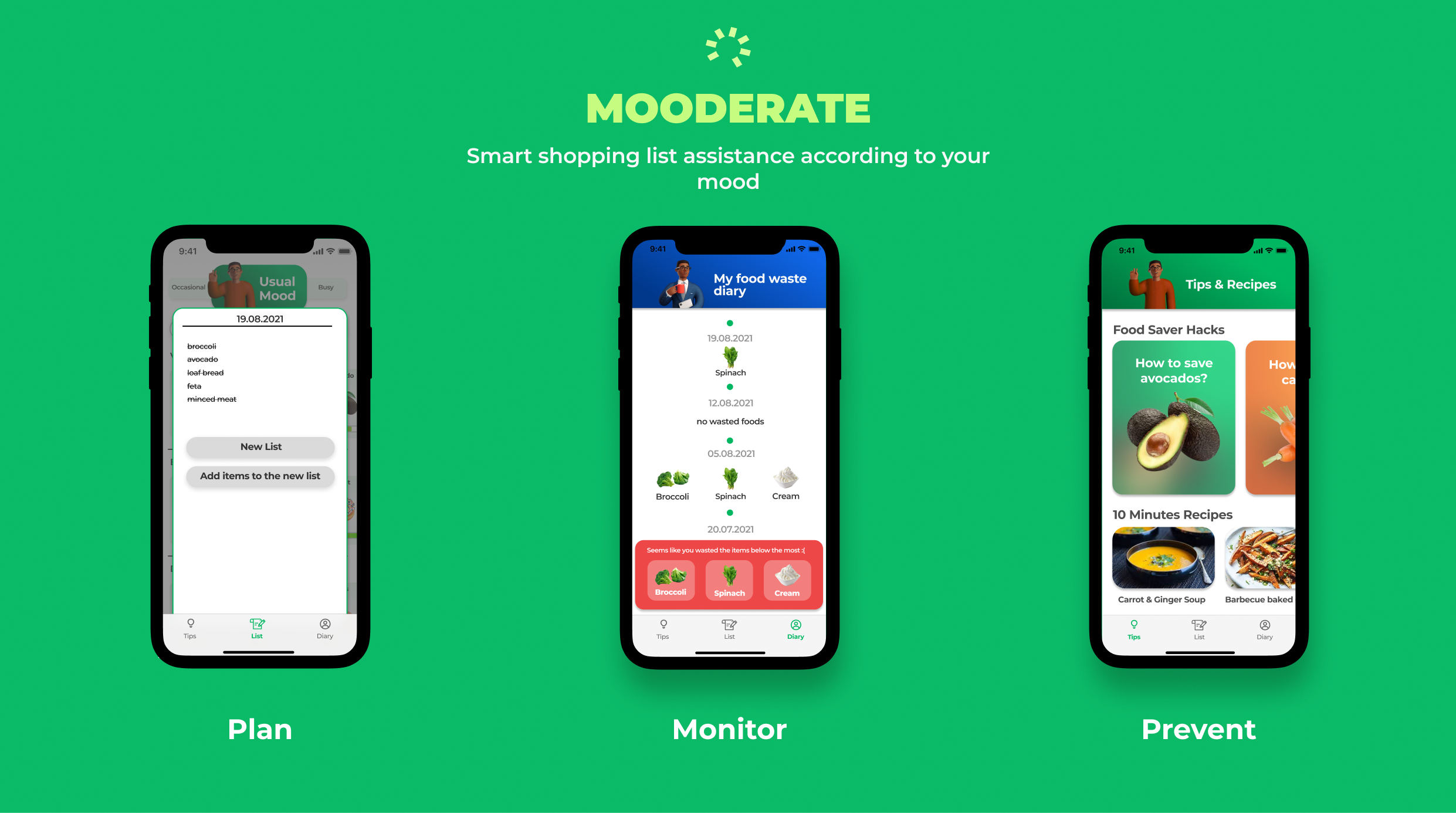
Experience Principles
Mooderate is guiding the user to make more mindful plans learning from their lifestyle and it is reassuring the user to remember list-making and check-off thanks to the shop-proximity feature.
Mooderate is improving user's awareness by encouraging them to keep a food waste diary.
Mooderate is empowering & encouraging the users by providing food saver tips & 10-minute recipes for their current lists.
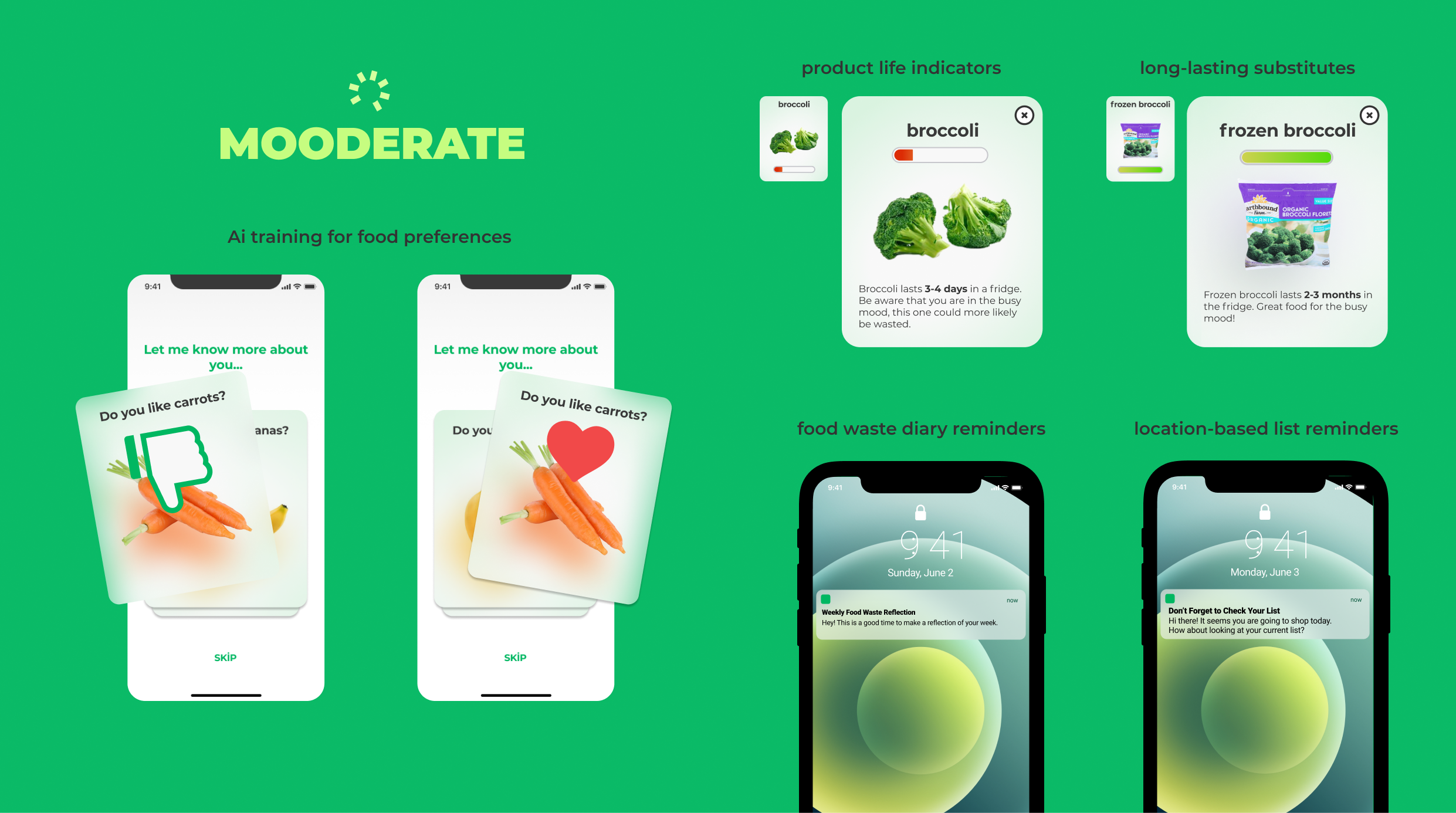
Design for Behaviour Change
Mooderate uses Feedback and Behaviour Steering Strategies to enable mindful shopping and food waste prevention to become a habit in every mood of the user's life.
Ulgen Ayranci
I am passionate about exploring the ways technology and people’s lives intersect to create meaningful experiences for the future and the planet.
I studied Industrial Design at Istanbul Technical University, worked as a small kitchen appliances designer for 7 years, where I advanced my skills across industrial design and design engineering. These disciplines have shaped me into a good problem solver and an adaptive designer with a growing willingness to learn. Then I decided to diversify my skills by learning how to design experiences to pursue a career in digital product design.
I am highly proficient across a range of creative software such as Figma, Adobe XD, Photoshop, Indesign, and a restless brainstormer using various ideating methods such as Crazy 8's, 5Why's, using analogies. During my masters, I’ve worked across many different briefs, gained extensive experience collaborating in multi-disciplinary teams and remote working. I advanced my storytelling skills which improved my empathy and communication skills. I also gained experience utilizing user research platforms like Indeemo and rapid prototyping apps like Marvel alongside conducting usability tests.
I like working methodically using human-centred design processes and enjoy conducting user researches, prototyping and delivering impactful and visually pleasing design outcomes. I am curious and eager to learn immersive technologies and practice my design skills by applying them to people’s experiences.
Major project
Helping busy young professionals to become more mindful about their shopping decisions to prevent food waste
Awards
In May 2020, I completed the 'IBM Enterprise Design Thinking Practitioner' certification and earned the practitioner badge by demonstrating my knowledge and application of IBM's design thinking methodologies.
In November 2020, my team project Delight - a scheduled food delivery app collaborated with Hongkong University Bussiness School students - won the Best Branding Award in UXathon 2020.